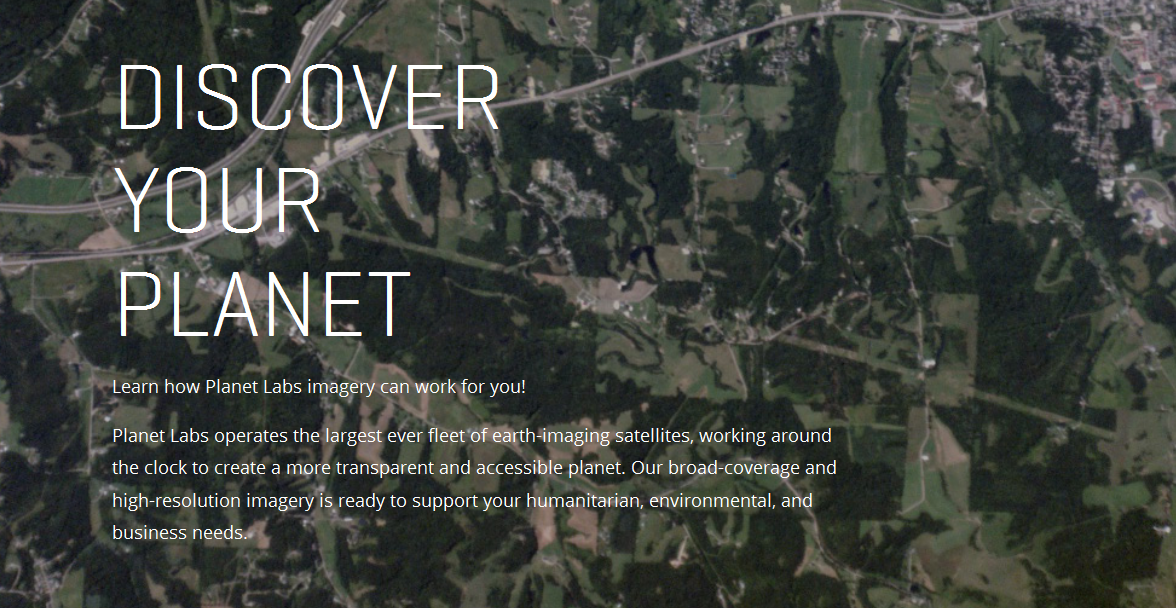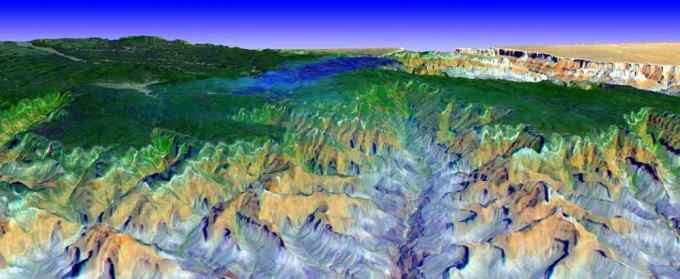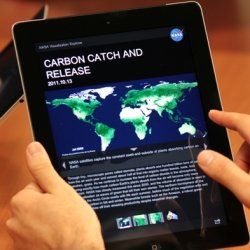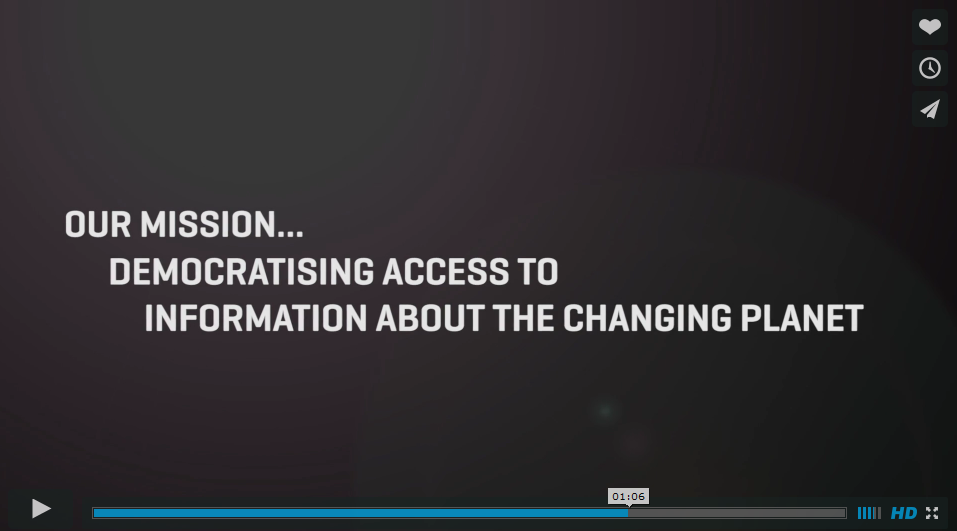Democratization of Space
- Democratizing "New Space"
Planet Labs democratizing space / Forbes - April 2014
How NASA led tech to the Cloud / WSJ - May 2012
Robbie Schingler, a co-founder of Planet Labs, met Worden in Houston, TX.
“For five hours we were yelling at each other across the table,” recalls Robbie Schingler, now 33, who was then between master’s degrees at the International Space University and the Georgetown University McDonough School of Business. “The next day he said, ‘Let’s write a paper together on the pros and cons of weaponizing space. You write the cons, I’ll write the pros.’”
The paper never materialized, but an unusual friendship and mentoring relationship did. When Worden became director of the NASA Ames Research Center in Silicon Valley four years later, he recruited the group of Houston 20-somethings, along with a handful of their friends. Included were Schingler and Chris Kemp, then 28, who would become Ames’s director of business development and later its chief technology officer.
○ ○ ○ ○
NASA Oversight Hearing, Feb 25, 2015
Launched March 3, 2015, NASA #TechPort website #NASA’s latest tech development activities
○ ○ ○ ○
Worden told SpaceNews that the nine years he spent at Ames were the most enjoyable of his 40 years of public service.
“In the last nine years we have launched dozens of small, low-cost satellites – and helped ignite a major new industry in this area. Ames people have revitalized space biology and begun to apply the new field of synthetic biology,” Worden said via email Feb. 26. “Ames has provided entry technology for the emerging commercial space launch sector. We have helped launch small satellites working with a number of nations. And we’ve hosted and inspired thousands of students.”
[Ed: from early Cold War 'spin offs' of military R&D and defense spending came ARAPANET from DARPA, the genesis of today's Internet]
The future of NASA and SDI are a separate topic for others to address. Here at GreenPolicy we are tracking the utilization of technology that has moved from 'first generation' military purposes to first generation "New Space" 'open' uses. The democratization of space envisions moving from military-dependency to civilian/educational/environmental/scientific/engineering/resource monitoring and management -- a full spectrum of #EarthScience that, hopefully, brings a future of environmental-national-global security. Our position is that the application and re-purposing of initial space-borne military systems can be and should be applied to earth resource monitoring and management as legislative *technology transfer* has codified over the past two decades. The successful restructuring of the old Cold War systems is a challenge, without question, yet the example of Pete Worden and Planet Labs bring both hope and a direction that is worth pursuing in the face of rising security challenges that are global and threats to security within and across borders.
_ _ _ _ _ _ _ _ _ _ _ _ _ _ _ _
• OpenStack strategy
OpenStack "Cloud in a Box"
• “New” model of Citizen Science
Micro-satellites, Nanosats
OTS components
_ _ _ _ _ _ _ _ _ _ _ _ _ _ _ _
The "New Space" field is pioneering the study of our blue planet with multiple new platforms monitoring earth systems and resources. PlanetLabs is a recently founded company that is out in front with its emphasis on open data sharing. Its mini satellites are called "Doves" and they "flock] for #earthmonitoring and rapid sequence imaging.
An API for the Planet #PlanetLabs Open Source Conference keynote
Mission: "Democratizing Access to Information About the Changing Planet"
#PlanetLabs' API @the Open Source Conference
About Planet Labs Documentation Intro
February 5, 2015 - Private Spending on Space Is Headed for a New Record - Space Race 2.0 #NewSpace
Planet Labs has raised more than $160 million and launched 73 global imaging satellites. The growth was hard to imagine three years ago, when co-founder Will Marshall built the first of the miniature satellites nicknamed “doves” in a Silicon Valley garage.
“A lot of people were very skeptical, and what we were trying to do seemed ludicrous,” said Marshall, a former engineer at NASA Ames Research Center in Mountain View, California. “But we have assets in orbit, and customers who are very interested in the data. Every time we take a picture, we can see how the world is changing.” -- Bloomberg
Planet Labs, flying Doves unprecedented, observing Planet Earth with 'rapid cadence' imaging opening possibilities never before offered
Connect
Planet Labs/NYT Planet Labs, newly #ISS deployed Doves Smartphones in space!
Launch of new Flock of Dove Satellites to Image Earth
Planet Labs 'Dove' micro-satellites
New York Times / "Rapid cadence imagery, like Planet Labs is developing, helps us become better, more sustainable stewards of Earth."
Citizens of the Planet -- #PlanetCitizens
____________________________________________________________________________________________________________________________________________
Geo, Group on Earth Observations
____________________________________________________________________________________________________________________________________________
National Science and Technology Council / US Group on Earth Observations Council
The Federal Government invests more than $3 billion in civil Earth observations and data annually across multiple agencies, and leverages investments made by State, local and tribal governments, academia and industry...
The NASA OpenNEX Challenge to the Public -- Join In, Our Data is Yours
NASA/JPL focus on #PlanetEarth
Earth Observing System (ECHO) - Earth Science Data Information Systems API
NOAA View Data Exploration Tool
____________________________________________________________________________________________________________________________________________
- "New Space"
Generation 1.0, an era of Micro-satellites and #EarthImaging
○ ○ ○ ○
Community of #PlanetCitizens observing, networking, sharing information, protecting #PlanetEarth...
○ ○ ○ ○
- Citizen Science
Citizen Science by Planet Citizens
○ ○ ○ ○
Planet API | #PlanetAPI | Planet Citizen | #PlanetCitizen
GreenPolicy360 | #Earth360 | #EarthImaging | #EarthMonitoring
GP360 | #EarthObservations | #EarthScience | #NewSpace
www.planetcitizen.org | www.earthpov.com
○ ○ ○ ○
- Your Mission if You Choose to Go
Democratising access to information about Planet Earth... Planet Labs brings home the data
Be one of the first ever on our voyage over time to show you're an Earth-wise #PlanetCitizen





